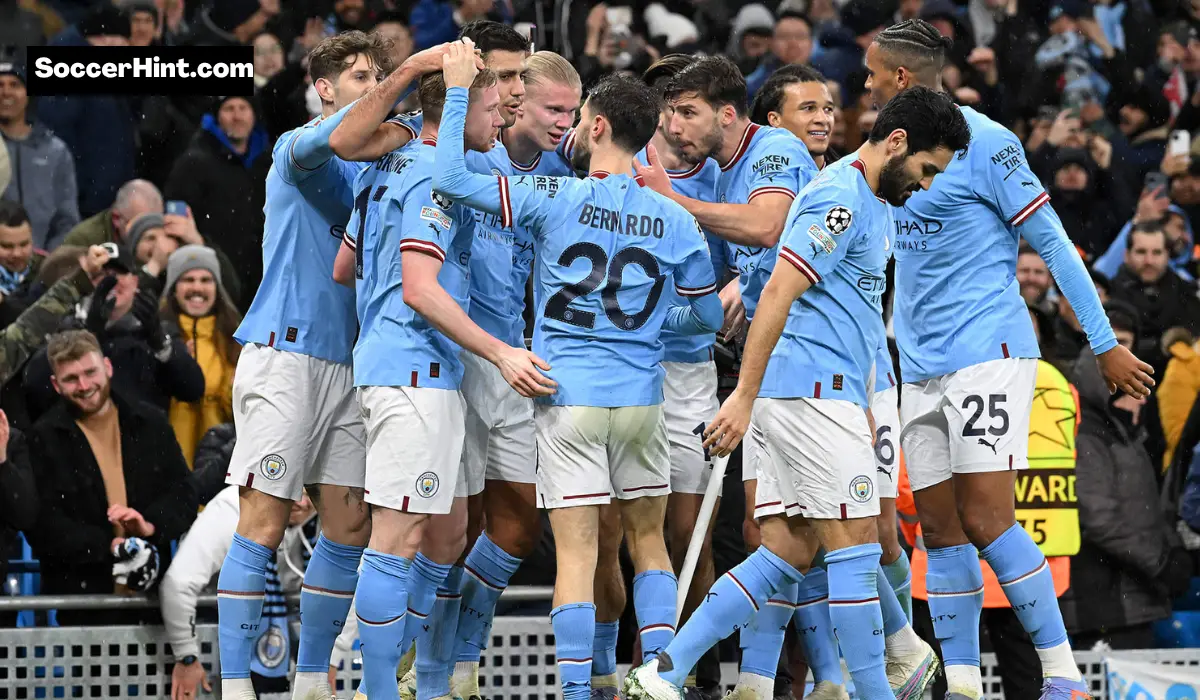Beyond the roar of the crowds and the thrill of the game, the names that football teams bear are not mere labels; they are intricate tapestries woven with historical threads, geographical roots, and the collective spirit of passionate communities. As football fans, it’s only natural to ponder the origins of these team names — from the iconic Reds to the enigmatic Foxes — and explore the fascinating stories that have shaped how football teams got their names.
This article embarks on a journey to uncover the mysteries behind how football teams got their names, revealing a world where history, geography, and the unique characteristics of both animals and industries converge to form the essence of the beautiful game.
5 Factors That Determine How Football Team Get Their Names
1. Geographical Roots
Naming football teams after their geographical locations is a prevalent and enduring practice, weaving a strong bond between the club and its hometown. This method not only acts as a geographic identifier but also instils a profound sense of local pride among fans. Let’s consider some examples.
Manchester United: The name “Manchester United” stands as a testament to the club’s deep roots in the city of Manchester. Formed in 1878, the club’s moniker evolved from the merger of two local clubs, Newton Heath and Manchester Central, in 1902. The addition of “United” wasn’t merely symbolic; it aimed to create a cohesive football force that would represent the entire city, transcending the individual legacies of its precursor clubs.
Real Madrid: Real Madrid, one of the most illustrious clubs globally, derives its name from a historical and royal connection. The term “Real” means royal in Spanish, and the club received this honorific title from King Alfonso XIII in 1920. Beyond being a geographic identifier, “Real Madrid” carries a regal connotation, elevating the club’s status and adding a touch of royalty to its identity.
(Did you know that Real Madrid Have Never Won A Treble?)
Read Also: How Real Madrid Make Money and How Real Madrid Derived The Los Blancos Nickname
2. Historical References
Drawing inspiration from historical events, figures, or cultural elements adds layers of meaning and significance to how football teams got their names. Establishing a link to the past resonates with the fans.
For example, AS Roma’s name is a nod to the eternal city of Rome. The prefix “AS” stands for “Associazione Sportiva,” emphasizing the club’s sporting nature. The inclusion of “Roma” directly ties the team to the city’s rich historical and cultural heritage. In choosing this name, AS Roma becomes not just a football club but a representative of the spirit and legacy of Rome itself.
Another good example is that of Arsenal. Arsenal’s nickname, “The Gunners,” delves into the club’s historical roots. Formed in Woolwich, the club has a direct connection to the Royal Arsenal, a munitions factory. The name not only pays homage to this industrial past but also symbolizes the team’s strength and firepower on the football field.
Also, Celtic FC, founded in 1887 in Glasgow, finds its name deeply rooted in the historical and cultural heritage of the Celtic people. The name “Celtic” reflects the club’s commitment to Celtic traditions, creating a sense of cultural pride and identity among its supporters. The club becomes a living testament to the enduring legacy of the Celtic people.
Read Also: What’s The Role of A Club Chairman?
3. Animal Instincts
Football teams frequently adopt animal-inspired names, symbolizing specific traits or characteristics associated with the chosen animals.
Again, the example of Manchester United (Red Devils) is one to consider. The moniker “Red Devils” was born out of historical events, specifically World War I. The 11th Battalion of the Manchester Regiment, known as the “Red Devils,” inspired the football club’s nickname. Adopting this name symbolizes resilience, bravery, and tenacity on and off the field, creating a powerful association that extends beyond the realm of football.
Also, Leicester City’s adoption of the nickname “The Foxes” speaks to the team’s on-field tactics. The name symbolizes cunning and strategic prowess, traits attributed to the sly and agile fox. This animal-inspired moniker has become an integral part of the club’s identity, embodying the team’s ability to outsmart opponents.
4. Colourful Characters
Incorporating colours into team names goes beyond aesthetics; it becomes a vibrant representation of a club’s identity and spirit.
For example, AC Milan’s name incorporates both colour and symbolism. The iconic red and white stripes are not just a visual identity but a representation of the team’s fiery determination. The name “Rossoneri,” translating to “Red and Blacks” in Italian, encapsulates the essence of the club’s visual identity, emphasizing the significance of colours in representing the team.
5. Industry and Professions
Some teams derive their names from local industries or professions, reflecting the economic landscape of their hometown.
For example, Sheffield United’s name directly aligns with the city’s historic steel industry. Founded in 1889, the club emerged during a period when Sheffield was a major hub for steel production. The team’s name reflects the industrial character of its hometown, creating a symbolic link between the club and the city’s economic heritage.
Also, Sunderland AFC’s unique nickname, “The Black Cats,” carries an interesting anecdote. According to lore, a shipyard worker’s black cat brought good luck to the team. This charming tale intertwines local superstitions with the city’s maritime heritage, adding a touch of whimsy to the team’s identity.
6. Fan Influence
The influence of fan culture and sentiments often played a crucial role in shaping how football teams got their names.
Again, FC Barcelona is one to consider. FC Barcelona’s nickname, “Blaugrana,” showcases the direct influence of fan sentiment. Combining the Catalan words for blue and scarlet, the name represents the team’s colours. Beyond the visual identity, the club’s anthem, “Mes que un club” (More than a club), emphasizes the profound connection between the team and its passionate supporters.
Also, Borussia Dortmund’s nickname, “Die Schwarzgelben,” directly translates to “The Black and Yellows.” This name arose from fan influence, with supporters expressing a desire for a unique identity that stands out on the pitch. The black and yellow colours have become synonymous with Borussia Dortmund, reflecting the collective will of the fanbase.
Conclusion
In the symphony of football’s global narrative, the names of teams are not mere labels; they are intricate tales woven with threads of history, geography, culture, and the passionate heartbeat of fans. The key to unravelling the mystery of how football teams got their names lies in understanding the diverse methods that shape these identities.
Remember that in every name, a story unfolds, revealing the rich tapestry of football’s past and present. So, the next time you cheer for your favourite team, remember that behind the name lies a captivating narrative, a fusion of history, geography, and the passionate spirit of fans. Football teams, in their names, embody more than just athletic prowess — they encapsulate the essence of the beautiful game itself.





